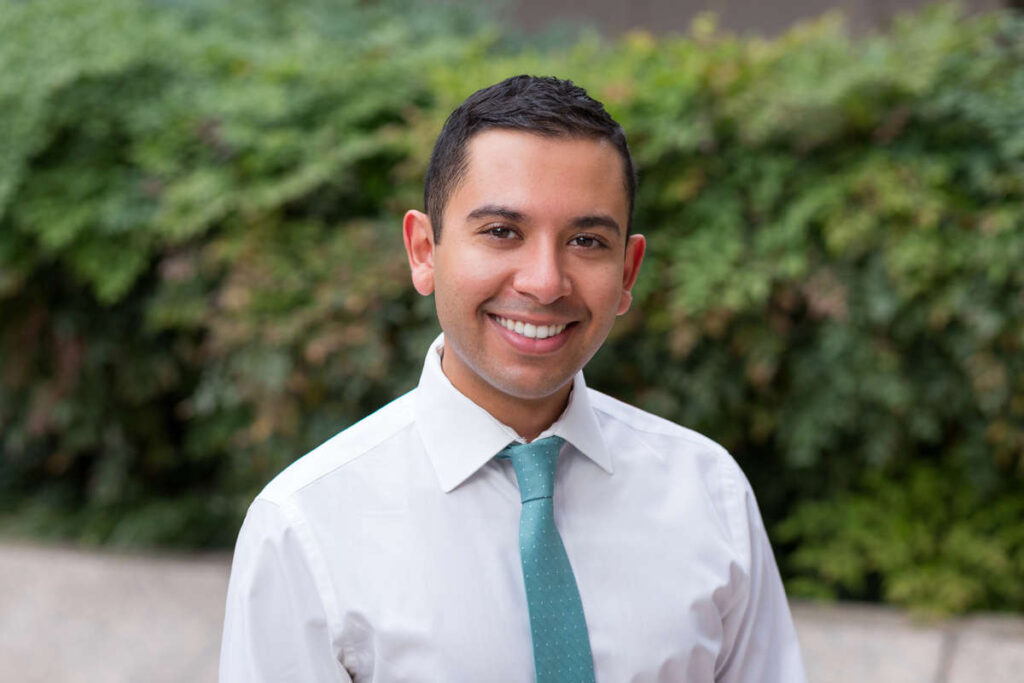Throughout my time in philanthropy, I’ve developed coping mechanisms. Connecting back to breath, self-care evenings after work, opting for a phone call in the park rather than Zoom.
Mostly helpful, the mechanisms have been rooted in a fundamental belief that everyone deserves healing and time to rest. Until recently, I had not grappled with the difference between coping mechanisms focused on symptomatic relief and those focused on prevention.
Microaggressions and disparaging assumptions because of my race and queer identities have led me to a different type of coping mechanism: one rooted in protection. To shield myself from future harm, I have consciously surrounded myself with like-minded people. At home, at the office, in my relationships. The truth is that it’s simply easier to exist in this world alongside people who fully see you and maintain aligned thoughts on current social, economic, and environmental problems and what to do about them.
I don’t shame myself for creating this protection spell because BIPOC weathering is real and, on the whole, most feel less inclined to push their social boundaries after the pandemic. I honor the parts of myself that have kept me safe, sane, and present at work and in my personal relationships.
The trade-off for personal protection has been a profound distancing from people I’ve pre-judged as harmful. It’s easier to stick to a narrative of binaries: my people vs. them. And it’s not totally unfounded because I have been harmed by those that have a different world view. The problem is that pre-judging and remaining in my protective silo hasn’t allowed me to reach the people that need to hear (and could ultimately advance) GEO’s message the most.
This thought became even more crystallized through the closing keynote by Anand Giridharadas at 2023 The Colorado Health Symposium. Author of The Persuaders, Giridharadas spoke about the political Left’s tendency to create more barriers to joining their causes because someone doesn’t have all the “right” words, education, or experience. He detailed stories of effective persuaders – working on the frontlines of trans justice work, environmental protection, and against racism – and their tactics for reaching people who think and act very differently than them.
These persuaders made traction by approaching each conversation with humility and openness, seeking to understand someone else’s experience and how they’ve landed on certain behaviors around trans exclusion, for example. Once hearing people’s stories, these persuaders were able to thread moments of connection and highlight shared values or beliefs (i.e. “fighting for the underdog”). From there, they were able to show how that core value or belief is exactly why they believe in respecting trans people’s rights and ability to thrive.
To successfully persuade, approach each opportunity with curiosity – not judgment. Possibility over prejudice. Without these rich conversations rooted in understanding, we are not going to make strides in the movements that we care about, especially not in racial equity in philanthropy.
The truth is that everyone is working from the knowledge, skills, assumptions, hypotheses and resources at their disposal. Oftentimes protecting themselves or their families. What’s possible if I approached these people with the same respect and empathy that I’m asking of them? It’s a worthy hypothesis to test. I recognize there is a privilege in having the opportunity to broach these subjects in a safe and well-resourced manner. Not every person or conversation is safe.
But when people authentically desire to be in dialogue to listen and understand, I think about what I’m called to do working for an organization trying to shift philanthropic culture and practice. Without me leaning into uncomfortable conversations, I’m potentially not reaching people who could join the movement to create institutional and systemic change.
After the 2024 election, I feel our country headed toward an inflection point. We can’t collectively solve problems while committing to divisive and polarizing behaviors. I am reminded of Giridharadas’s resonant metaphor as it relates to the Left’s adherence to in-group and out-group dynamics. He says that rather than being a bouncer at a club, our ethos should be one of creating the most welcoming cookout at a public park.
When someone believes something fundamentally different but still wants to know what tune you are playing, offer them a drink and ask them what road took them to this moment. Perhaps there are a couple of familiar bumps in the road. If you’re not feeling ready to gather, I hear and respect you. For those that feel safe to do so, join me in hosting the cookout together.
- Check out the NPR Seeking Common Ground Series to listen to other examples of people working through their differences.
- Check out Good Reasonable People: The Psychology Behind America’s Dangerous Divide
- Check out an article by the Stanford Social Innovation Review, Philanthropy in a Time of Polarization

